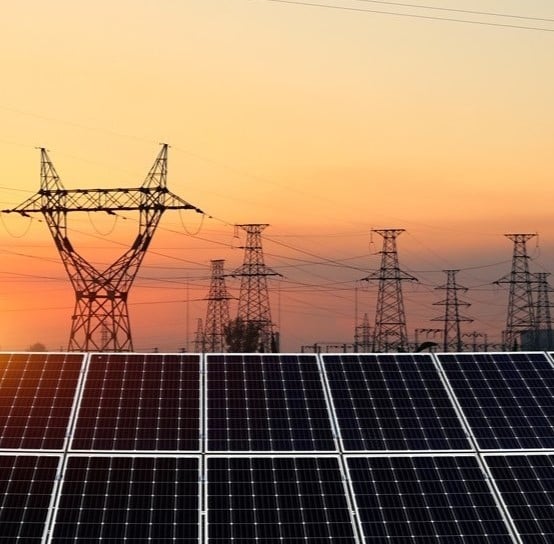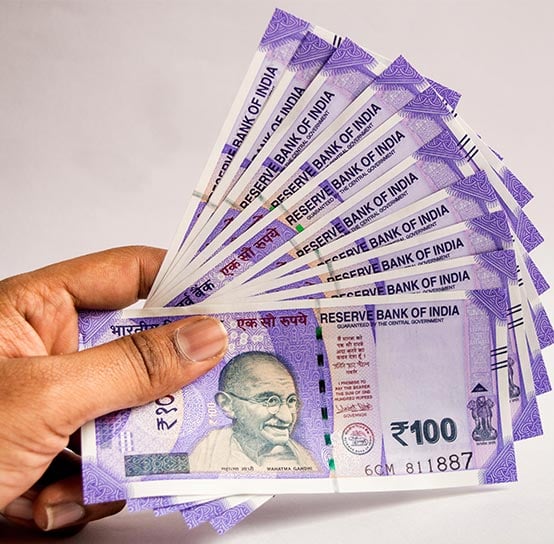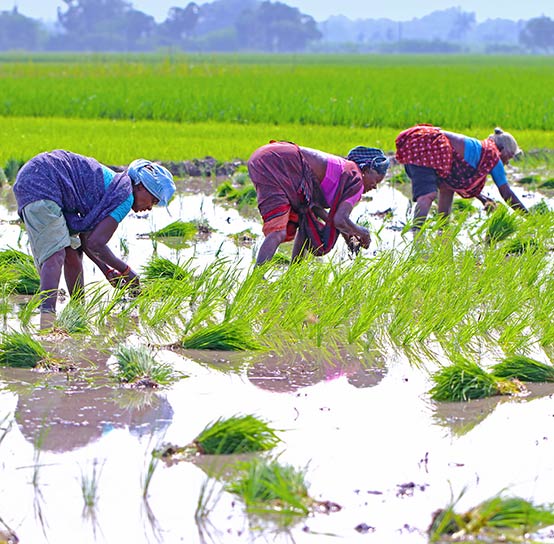-
Digital Natives
Unlock growth with Grant Thornton Bharat's Digital Natives solutions. Customised support for tech-driven companies in healthcare, gaming, and more.
-
Business Consulting
Our business consulting specialists offer a comprehensive blend of strategic advisory services. We assess the business, industry, operating model, synergy, skill sets and vision of the organisation and recommend the way forward
-
Digital Transformation Services
Grant Thornton’s digital transformation services help traditional businesses digitalise their business models with cloud technology, IoT consulting, app development and more DigiTech solutions.
-
Human Capital Consulting
Our Human Capital Consulting team harnesses technology and industry expertise to assist in constructing adaptable organisations with transparency, fostering productive and value-driven workforces, and inspiring employees to engage meaningfully in their tasks.
-
Production Linked Incentive Scheme
Production-linked Incentive Scheme by the Indian government is aimed at boosting manufacturing. Grant Thornton Bharat offers varied services across sectors to help businesses avail of this scheme.
-
Public Sector Advisory
Our Public Sector Advisory team has focused streams, aligned with the core priorities of the Government of India. We are responsible for providing innovative and customized technical and managerial solutions.
-
Tech Advisory
We have amalgamated Digital Transformation, IT Advisory & Information Management and Analytics into a new offering, DigiTech.
-
Direct Tax services
Our tax specialists offer a comprehensive blend of tax services, tax litigation, regulatory and compliance services, helping you navigate through complex business matters.
-
Indirect Tax Services
Get tax services by leading tax firm Grant Thornton India. Our indirect tax services include consulting, compliance and litigation services for corporate, international and transaction tax
-
Transfer pricing services
Our transfer pricing services experts provide a range of services from provision of APA services to handling large global assignments including Country by Country reporting.
-
US Tax
At Grant Thornton, we help individuals and dynamic companies deal with US tax laws, which are one of the most complicated tax legislations across the world.
-
Financial Services - Tax
Best financial advisory services, tailored for small and large businesses by the experts having comprehensive knowledge of domestic laws and access to multifaceted tools to provide a valuable results.
-
Financial Reporting consulting services
Our experts have significant hands-on experience in providing IFRS/US GAAP services, end-to-end solutions and support services to fulfil financial reporting requirements.
-
Fund accounting and financial reporting
International operations often lack standardisation and have varied local reporting formats and requirements. Our experts can offer proactive insights, practical guidance, and positive progress and help meet regulatory timeframes.
-
Compliance and Secretarial Services
Our experts can assist in overhauling the entire compliance machinery of the organisation through evaluation of the applicable statutory obligations, monitoring of adequate governance controls, reporting and providing ongoing support.
-
Global People Solutions
As businesses transcend borders, both domestic and global considerations need equal attention. Our interim CFO and financial controller support services help organisations meet the business vision.
-
Finance and accounting outsourcing
Our accounting experts assist organisations in managing their accounting and reporting. Our dedicated Integrated Knowledge and Capability Centre (IKCC), allows us to service both the domestic and global markets efficiently and cost-effectively
-
Compliance Management System
We have automation solutions for you that will allow meeting government requirements and remain diligent, which when failed, can lead to penalties and loss in revenue.
-
IKCC: Grant Thornton's Shared Service Centre
The India Knowledge and Capability Centre (IKCC), aimed at delivering solutions by developing capabilities, has completed four years of its journey.
-
Global compliance and reporting solutions
At Grant Thornton Bharat, we meet the challenges of our clients and help them unlock their potential for growth. Our professionals offer solutions tailored to meet our clients’ global accounting and statutory reporting requirements. With first-hand experience of local reporting requirements in more than 145+ locations worldwide, we provide seamless and consistent international service delivery through a single point of contact.
-
Related Party Transactions Governance
Grant Thornton Bharat's comprehensive related-party transaction services ensure good governance by adhering to regulatory requirements, promoting transparency, and providing robust policies for compliance, documentation, and accountability in related-party transactions.
-
Family Offices & Private Client Services
Grant Thornton Bharat Private Client Services offers tailored advisory for family-owned businesses, focusing on governance, compliance, tax, succession planning, and family office structuring to sustain wealth and preserve legacies across generations.
-
GTMitra: Tax & Regulatory Tool
GTMitra, a specialised tax and regulatory tool by Grant Thornton Bharat, supports multinational businesses in understanding laws and regulations for effective growth strategies.
-
Labour codes
Labour codes solutions help you transition through the new legislation. At Grant Thornton, we help businesses divide their approach to make sure a smooth transition.
-
Alerts
At Grant Thornton India, with the help of our tax alerts, we help to provide updates on how to minimise your tax exposure and risks.
-
Unlocking opportunities: India investment roadmap
The India Investment Roadmap resource is designed to navigate the complexities of Indian tax and regulatory laws, providing seamless guidance and a comprehensive set of solutions to ensure a smooth process for investors aiming to establish or expand their presence in India.

-
Cyber
In today’s time, businesses have gone through large transformation initiatives such as adoption of digital technologies, transition to cloud, use of advanced technologies et al.
-
Governance, Risk & Operations
Our Governance, Risk and Operations (GRO) services encompass Internal Audit, Enterprise Risk Management, Internal Financial Controls, IT advisory, Standard Operating Procedures and other services.
-
Risk analytics
Grant Thornton Bharat’s CLEARR Insights is a state-of-the art data analytics platform that will help you in seamless data analysis and efficient decision-making.
-
Forensic & Investigation Services
The team of forensic advisory services experts consists of the best intelligence corporate experts, and fraud risk, computer forensic experts to deliver most effective solutions to dynamic Indian businesses.
-
ESG consulting
Grant Thornton Bharat offers holistic ESG consulting solutions for sustainable business outcomes. With industry expertise and AI technology, we drive long-term value.

-
Transaction Tax Services
Our transaction tax experts understand your business, anticipate your needs and come up with robust tax solutions that help you achieve business objectives ensuring compliance and efficiency
-
Deal Advisory
Unlike other M&A advisory firm in India, we offer deal advisory services and work exclusively with controlled and well-designed strategies to help businesses grow, expand and create value.
-
Due Diligence
Grant Thornton’s financial due diligence services are aimed at corporate looking for mergers and acquisitions, private equity firms evaluating investments and businesses/promoters considering sale/divestment.
-
Valuations
As one of the leading valuation consultants in India, Grant Thornton specializes in all the aspects of the process like business valuation services, financial reporting, tax issues, etc.
-
Overseas Listing
Overseas listing presents a perfect platform for mid-sized Indian companies with global ambitions. Grant Thornton’s team of experts in listings, work closely with clients during all stages.
-
Debt & Special Situations Solutions
Grant Thornton Bharat offers specialist debt and special situations consulting services, including restructuring, insolvency, and asset tracing solutions.
-
Financial Reporting Advisory Services
Grant Thornton Bharat Financial Reporting Advisory Services offer end-to-end solutions for complex financial requirements, including GAAP conversions, IPO support, and hedge accounting advisory, ensuring accurate financial reporting and compliance.
-
Financial Statement Audit and Attestation Services
Grant Thornton Bharat offers customised financial statement audit and attestation services, ensuring impeccable quality and compliance with global standards. Our partner-led approach, technical expertise, and market credibility ensure effective solutions for your business needs.

- Agriculture
- Asset management
- Automotive and EV
- Aviation
- Banking
- Education and ed-tech
- Energy & Renewables
- Engineering & industrial products
- FinTech
- FMCG & consumer goods
- Food processing
- Gaming
- Healthcare
- Urban infrastructure
- Insurance
- Media
- Medical devices
- Metals & Mining
- NBFC
- Pharma, bio tech & life sciences
- Real estate and REITs
- Retail & E-commerce
- Specialty chemicals
- Sports
- Technology
- Telecom
- Transportation & logistics
- Tourism & hospitality
-
 Article Economic Survey 2024-25: Deregulation, investment and innovation for a Viksit BharatIndia's economic growth remains for a steady trajectory with real GDP expected to grow at 6.4% in FY25 and in the range of 6.3%-6.8% in FY26, reflecting resilience despite global uncertainties.
Article Economic Survey 2024-25: Deregulation, investment and innovation for a Viksit BharatIndia's economic growth remains for a steady trajectory with real GDP expected to grow at 6.4% in FY25 and in the range of 6.3%-6.8% in FY26, reflecting resilience despite global uncertainties. -
 Article Navigating market volatility and government support for Indian agricultureIndia's agricultural sector, the backbone of the nation's economy, contributes ~17% to the GDP and employs over half of the workforce.
Article Navigating market volatility and government support for Indian agricultureIndia's agricultural sector, the backbone of the nation's economy, contributes ~17% to the GDP and employs over half of the workforce. -
 Article Improving credit penetration in BiharRBI’s priority sector lending guidelines have a key role to play in providing credit to small farmers, artisans and micro firms
Article Improving credit penetration in BiharRBI’s priority sector lending guidelines have a key role to play in providing credit to small farmers, artisans and micro firms -
 Article Sustainable farming and its economic imperativeSustainable farming in India is crucial for food security, economic growth, and environmental conservation, requiring government support and farmer education.
Article Sustainable farming and its economic imperativeSustainable farming in India is crucial for food security, economic growth, and environmental conservation, requiring government support and farmer education.
-
India-UK
India-UK

Amidst the vibrant discussions of COP28, Union Minister for Environment, Forest, and Climate Change, Shri Bhupender Yadav took center stage to deliver a compelling national statement. Expressing gratitude to the United Arab Emirates for hosting the crucial summit, India commended COP28 Presidency for steering it as the "COP for Action." The essence of India's climate strategy in this respect revolves around three pivotal principles: Mission LiFE, Green Credit Initiative and an unwavering commitment to equity and climate justice.
India's Role in Climate Action
India's proactive role in global climate action is evident through its support for action-oriented measures, rooted in the inseparable connection between people and the planet. Prime Minister Narendra Modi's call to embrace Mission LiFE – Lifestyle for Environment exemplifies India's commitment to tangible actions. In sync with this, India unveiled the Green Credit Initiative at COP28, creating a global platform for innovative environmental programs and instruments.
A historic moment further unfolded as G20 nations adopted the Green Development Pact as part of the New Delhi Declaration this year. India's dedication was further solidified by finalizing its Third National Communication, based on the GHG inventory of 2019, along with the Initial Adaptation Communication. Notably, India surpassed expectations by achieving its NDC target set for 2030, reducing emission intensity by 33% between 2005 and 2019, eleven years ahead of schedule. Additionally, 40% of electric installed capacity now comes from non-fossil fuel sources, showcasing India's proactive stance in climate action.
Beyond domestic efforts, India's global contributions include the International Solar Alliance (ISA), Coalition for Disaster Resilient Infrastructure (CDRI), and the Global Biofuel Alliance. Launched at the G20 leaders' meeting in New Delhi, the Global Biofuel Alliance aims to catalyse global collaboration for the advancement and widespread adoption of biofuels.
Simultaneously, the landmark launch of the India-led Global River Cities Alliance at COP28 signifies a pivotal initiative for effective river management. With nine countries pledging support, the alliance aims to propagate river-sensitive development globally, aligning with the call for urban redevelopment in the India Infrastructure Report 2023.
Throughout COP28, India emphasized the significance of the Global Stocktake's outcomes, hoping they will provide meaningful inputs for enhanced climate action. Policymakers firmly believe that resource mobilization for New Collective Quantified Goal must align with needs of developing countries, emphasizing the bedrock of its climate action – equity and climate justice.
Key Outcomes of COP28
The 28th Conference of Parties (COP28) witnessed critical agreements and initiatives that shape the global climate agenda. One notable achievement was the operationalization of the Loss and Damage (L&D) fund, aimed at compensating countries grappling with climate change impacts. The fund, committed to more than US$ 792 million, is managed by the World Bank aligning with UNFCCC and the Paris Agreement.
The Global Stocktake, a comprehensive assessment of climate action, featured prominently in COP28 outcomes. The fifth iteration of the text was adopted with no objection, proposing steps to keep global temperature rise within the 1.5 degrees Celsius ambit. Key aspects include tripling renewable energy capacity, ‘phasing down’ unabated coal power, achieving net-zero emissions energy systems, accelerating zero and low emissions technologies, and transitioning away from fossil fuels.
Fast-tracking a just, orderly, and equitable energy transition was a key focus. The COP28 Presidency led the Global Renewables and Energy Efficiency Pledge, endorsed by 130 national governments. Signatories commit to tripling the world’s installed renewable energy generation capacity to at least 11,000 GW by 2030 and doubling the global average annual rate of energy efficiency improvements. Initiatives like the Global Cooling Pledge, Mutual Recognition of Certification Schemes for Renewable and Low-Carbon Hydrogen, Oil and Gas Decarbonisation Charter, and Industrial Transition Accelerator further underscore collaborative efforts towards sectoral emissions reduction.
Challenges and Future Directions
COP28, while marking significant strides, fell short of the decisive action demanded by climate science. The summit achieved a landmark agreement to aid nations vulnerable to climate impacts. But scrutiny on the Global Stocktake revealed concerns over fossil fuel language and weakened commitments. Carbon markets face challenges leaving key questions for COP29. The emphasis on a just transition and nature-based solutions signal progress but requires further definition and commitment.
The Global Goal on Adaptation (GGA) introduced at COP28 is a positive step addressing critical issues like climate-induced water scarcity, resilient food and agricultural production and health impacts. However, the agreement lacks financial provisions emphasizing the need for continued work to strengthen it. India's decision not to sign the Global Methane Pledge reflects sensitivities around agriculture. Developing countries including India stress the importance of negative carbon emissions for rich nations that have consumed a significant portion of the global carbon budget. Call for common but differentiated responsibilities and respective capabilities remain central to developing countries' stance.
India's Leadership Post COP28 Laying S.E.E.D.S for a Sustainable Future, India envisions a path illuminated by the acronym S.E.E.D.S - Sustainable Environmental Endeavours for a Dynamic Society. The comprehensive framework focuses on Strengthening Global Collaborations, Elevating Adaptation Measures, Empowering Communities, Driving Innovation, and Safeguarding Climate Justice. By leveraging S.E.E.D.S, India commits to fostering a holistic approach that transcends borders, enhances resilience, empowers local communities, stimulates innovation, and upholds the principles of equity. S.E.E.D.S encapsulates India's commitment to cultivating a sustainable and dynamic global society, fostering collaboration, and steering the world towards a greener, cleaner and healthier future.
Conclusion
COP28 marked both achievements and challenges on the global climate front. The outcomes reflect a collective recognition of the urgency to transition away from fossil fuels in a just and equitable manner. As we navigate the complex path towards a sustainable future the world must heed the lessons of COP28 and collectively strive for a greener, cleaner, and more equitable world.
This article first appeared in ET Energyworld.com on 18 December, 2023.